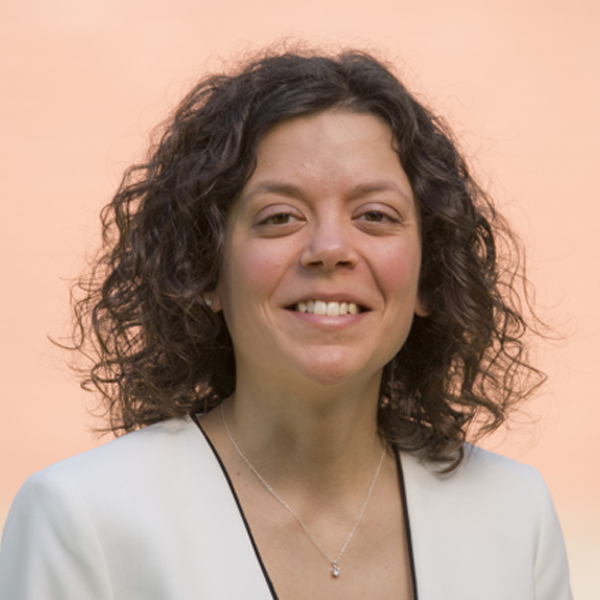Catarina Marques dos Santos is an Assistant Professor at the Department of Organisation, Strategy and Entrepreneurship at Maastricht University School of Business and Economics. Catarina received her PhD in Human Resources Management and Development from Maastricht University and ISCTE-IUL (Portugal). She studied Social and Organisational Psychology at ISCTE-IUL and at Leiden University (the Netherlands).
Catarina´s expertise lies in the field of management, namely on team dynamics, cognition, adaptation, and leadership. Her research mainly focused on the team level, but she also conducts research at the individual-level. Her research has been published in top journals such as The Leadership Quarterly, Group & Organization Management, European Journal of Work and Organisational Psychology, Journal of Business Research, and European Management Journal.
Catarina is involved in the MaastrichtMBA programme as lecturer in the On-Campus MBA core module on the topic of Organisations in Times of Change.
My connection with Maastricht started when I was doing my PhD. The first international congress in which I presented my research was here in Maastricht – the European Association of Work and Organizational Psychology (EAWOP) Congress. A couple of years later, also during my PhD, I came back to Maastricht to work as a visiting researcher at the Faculty of Psychology and Neuroscience, at the Department of Work and Social Psychology. At that time, I got familiar with Maastricht University’s research culture and teaching and learning method (the Problem Based Learning, PBL), as well as with the city. I got such a good impression that once I saw the job ad for my current position I immediately decided to apply. Since February 2018 I have been working as an Assistant Professor of Organizational Behavior at Maastricht University School of Business and Economics.
In my role as course coordinator and tutor, I like to prepare and teach courses where students have to understand and reflect on theories and findings they read in academic papers and apply and transfer that knowledge to understand real-life situations, cases, or crises. In addition, due to the PBL approach, it is rewarding to stimulate, observe, and participate in discussions within a small group of students, which contributes to their development as critical thinkers.
As a researcher, I like to work on my research and work with my colleagues to understand how researchers and practitioners can promote work environments where individuals and teams are motivated and engaged, enjoy working together, adapt to challenges and changes, and achieve positive results over time.
Within the On-Campus MBA track of the MaastrichtMBA programme, I teach the modules team dynamics and managing the workforce in challenging times of the Organisations in Times of Change module. Besides that, I supervise BCP students.
In the session on Team Dynamics, we discuss the advantages and pitfalls of working with other people, factors that can increase and decrease individual and group performance (and how to overcome them), as well as the main drivers of teamwork.
In the session on Managing the workforce in challenging times, we discuss contemporary research on relevant topics, such as managing the hybrid workforce in sustained crises. This is a more practical session where students experience how they and their team respond to challenging situations, by participating in a crisis management simulation.
I believe that some of the changes we are experiencing now will remain in the next few years. Hybrid working is here to stay as people want to have the possibility of working remotely, or because organisations decide to switch to remote or hybrid working. This new way of working has implications for how team members and leaders interact with one another, build a shared understanding of relevant aspects in the work environment, learn from each other, or identify with the team.
There are a few lessons that I did not learn only in the last years, but instead were reinforced. One of those lessons is that leadership is crucial during crises. We saw for instance the way the country’s leaders made sense of the COVID-19 pandemic and communicated with people, and what impact the the difficult and challenging decisions they made had on people’s behaviours in preventing the spread of the pandemic, or being vaccinated.
Another lesson that was reinforced is the importance of trust at work. In the last years we saw how trust is indeed one of the building blocks of a functional and healthy relationship in the workplace, for instance when people had to work from home due to the lockdowns. Leaders, managers, and employees have to be vulnerable toward each other’s behaviours and trust they are honest and accountable.
I am particularly proud of being awarded a Marie Sklodowska-Curie Individual Fellowship in 2019, by the European Commission. This prestigious international grant has allowed me to focus my research on a contemporary topic in the management field, namely the development of team mental models in different types of teams. The development of team mental models is crucial in teams operating in a variety of industries and sectors as it may promote team learning, adaptation, and performance, decrease intragroup conflict, and ultimately prevent accidents and disasters.
I very much like watching the show MasterChef Australia as it combines a few of my interests. I enjoy cooking and I do research on teamwork. Thus, I enjoy watching the team challenges in particular and seeing how the contestants assign the leader (when they have the chance to do it), the leadership behaviours, how they work together and adapt to the challenges that occur during the tasks, as well as how they manage time.
Furthermore, my sister is a pastry chef and shares with me the challenges they face in the kitchen to work in teams and get the job done. One of my goals is to study kitchen teams to know more about their dynamics and potentiate teamwork in these teams.
